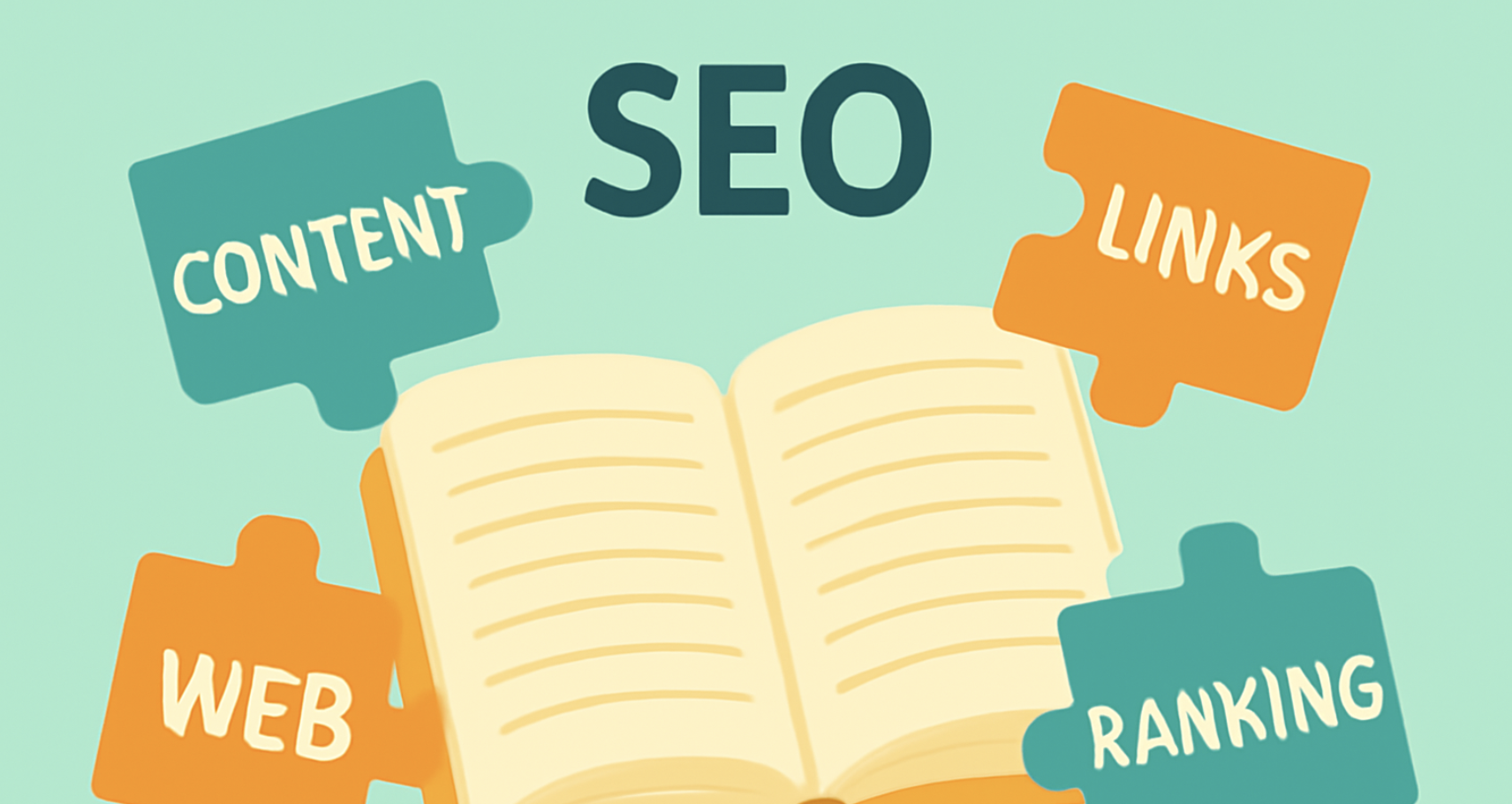
The vibrant and interconnected nature of digital book promotion through social media platforms.
In the ever-evolving landscape of the publishing industry, the art of promoting a book has transcended traditional boundaries, making way for innovative strategies that harness the power of digital connectivity. Among these, influencer outreach stands out as a pivotal element, especially for authors aiming to carve a niche in the crowded market. This approach, which forms the crux of influencer marketing, leverages the vast and engaged followings of social media influencers to amplify a book’s visibility, create buzz, and ultimately, drive sales. It’s particularly effective in the realm of young adult literature, where the target audience is deeply intertwined with the digital world, making social media channels an indispensable tool for authors.
This article is a comprehensive exploration of how authors can effectively utilize influencer marketing to connect with their ideal readership, generate excitement around their book launches, and foster a community of loyal readers. By delving into the nuances of identifying the right influencers, understanding the dynamics of various social media platforms, and crafting engaging content, this article aims to equip authors with the knowledge and strategies needed to navigate the intricate world of influencer outreach. Whether you’re a seasoned author or new to the publishing scene, embracing the synergy between influencer marketing and book promotion can unlock new avenues for reaching a wider, more engaged audience in today’s content-saturated world.
The collaborative and dynamic essence of authors engaging with social media influencers.
Influencer Outreach for Authors
In the digital age, where social media dictates trends and public interests, influencer outreach has become a cornerstone strategy for authors looking to promote their work. Influencer outreach involves engaging with social media personalities who have established a substantial and engaged following, to endorse or share content related to a book or author. These influencers, by their established credibility and rapport with their audience, can significantly amplify a message or product – in this case, a book – beyond traditional marketing channels.
The importance of influencer outreach for authors cannot be overstated. As the publishing world becomes increasingly saturated, standing out requires more than just quality writing; it demands innovative marketing strategies that speak the language of today’s readers, particularly those who consume content digitally. Influencers, with their ability to sway the opinions and behaviors of their followers, offer a direct line to targeted demographics, making them invaluable allies in the quest to capture attention in a crowded market.
For authors, particularly those in the young adult genre where the audience is highly active on platforms like Instagram, TikTok, and YouTube, influencer outreach can serve as a powerful tool to:
- Expand Reach: Influencers act as bridges to vast communities of potential readers that authors might not have access to through traditional marketing means. By leveraging the influencer’s platform, authors can introduce their work to a broader, yet targeted, audience.
- Enhance Credibility: When an influencer shares or recommends a book, it comes with a tacit endorsement of its quality and relevance. This perceived validation from a trusted source can significantly enhance the book’s credibility among potential readers.
- Drive Engagement: Influencer campaigns often involve creative content like book reviews, thematic discussions, or interactive Q&A sessions, which can engage audiences more deeply than standard advertisements. Engaged audiences are more likely to remember and seek out the book.
- Boost Sales: The ultimate goal of that initial outreach to influencers is to convert interest into action. By generating buzz and fostering an emotional connection with the audience, influencers can drive their followers to purchase the book, thus boosting sales.
- Create Lasting Partnerships: Successful influencer collaborations can evolve into long-term partnerships, providing a reliable channel for promoting future works and maintaining visibility in the digital sphere.
In essence, influencer outreach for authors, empowers authors to transcend the limitations of traditional book marketing by tapping into the digital ecosystems where today’s readers live, engage, and make purchasing decisions. It’s a strategy that not only broadens the reach but also deepens the impact of book promotion efforts, making it an indispensable tool in the modern author’s marketing arsenal.

The positive impact and success that influencer marketing brings to authors in their book promotion endeavors.
Influencer Marketing: The Benefits for Authors
Influencer marketing stands out for its unique ability to humanize and personalize the promotion process, making it particularly effective in industries where trust and personal connection play a significant role, such as publishing. For authors, the benefits of leveraging influencer marketing are manifold, offering a blend of efficiency, reach, and engagement that traditional marketing avenues often fail to provide.
Cost-Effectiveness: One of the most compelling advantages of influencer marketing is its cost-effectiveness. Compared to traditional advertising, which can require significant financial investment with varying returns, influencer partnerships often present more flexible and scalable budget options. Many influencers work in exchange for free copies of the book, exclusive content, or small fees, making this a financially viable strategy even for self-published authors or those with limited marketing budgets.
Access to a Highly Engaged Audience: Influencers cultivate their followings by consistently sharing content that resonates with their audience, resulting in a highly engaged community. When an influencer promotes a book, they’re not just broadcasting to a large number of passive viewers; they’re recommending it to an active, interested audience. This level of engagement typically translates into higher conversion rates, as followers are more inclined to trust and act on the influencer’s recommendations.
Enhanced Reach and Visibility: Influencers can dramatically expand the reach of a book beyond the author’s existing network. By tapping into the influencer’s audience, authors gain access to a wider pool of potential readers who, while outside their immediate circle, share interests aligned with the book’s themes or genre. This extended visibility is particularly crucial for new authors or those venturing into new genres.
Authenticity and Trust: The influencer’s endorsement serves as a powerful form of social proof, lending authenticity and credibility to the book. Followers who have built a relationship with the influencer over time are more likely to trust their recommendations, seeing them as genuine advice rather than a paid promotion. This trust can translate into a more positive reception and higher willingness to purchase.
Targeted Marketing: Influencers often have well-defined niches, allowing authors to target their marketing efforts more precisely. Whether it’s a young adult novel, a historical fiction piece, or a self-help guide, authors can collaborate with influencers whose audiences are likely to be interested in their specific book genre, ensuring that promotional efforts reach the most relevant and receptive viewers.
Content Variety and Creativity: Influencer marketing campaigns can take many forms, from simple book reviews and unboxings to creative content like themed photoshoots, interactive polls, or even live discussions. This variety not only keeps the audience engaged but also allows authors to showcase different aspects of their book, providing a richer understanding and generating more interest.
Long-Term Brand Building: Beyond the immediate goal of boosting book sales, influencer collaborations contribute to long-term brand building for authors. Each successful campaign enhances the author’s visibility, reputation, and connection with readers, laying the foundation for future publishing endeavors and creating a loyal fan base.

Understanding Your Target Audience
For authors, particularly those navigating the competitive landscape of young adult novels, understanding and identifying the right target audience is paramount. The success of a book often hinges on the author’s ability to connect with readers on a personal and emotional level, which is only possible when the content resonates with their interests, experiences, and aspirations. This section delves into the significance of pinpointing the ideal readership and offers strategies tailored to young adult novels.
The Significance of Identifying the Right Target Audience:
Identifying the right target audience is crucial for several reasons. It informs content creation, ensuring that themes, characters, and narratives align with the interests and experiences of potential readers. It also guides marketing efforts, enabling authors to tailor their promotional strategies to the platforms, channels, and messaging that best reach and engage their intended audience. For young adult novels, this often means tapping into the vibrant, dynamic world of social media and online communities where young readers actively seek recommendations and share their literary experiences.
Strategies for Pinpointing the Ideal Readership:
- Analyze Existing Readers: Start by analyzing the demographics and preferences of your current readership, if available. Look for patterns in age, gender, interests, and feedback from reviews or social media interactions. This can offer valuable insights into who is most receptive to your work.
- Understand Genre Expectations: Each young adult subgenre, from fantasy to contemporary romance, attracts a distinct audience. Familiarize yourself with the typical demographics of your genre, including age range, interests, and reading habits. This can help tailor your content and marketing to fit genre-specific expectations.
- Leverage Social Media Insights: Social media platforms offer a wealth of data on user engagement and preferences. Use these insights to understand the content and influencers your target audience follows, the hashtags they use, and the conversations they engage in. This can help refine your understanding of their interests and how best to engage them.
- Conduct Surveys and Polls: Directly engaging with potential readers through surveys or polls can provide direct feedback on their preferences, expectations, and reading habits. This can be done through social media, email newsletters, or online platforms where young readers congregate.
- Observe Trends and Influencers: Stay attuned to the trends and influencers shaping the young adult literary scene. This includes not only book trends but also broader cultural, entertainment, and social trends that captivate young audiences. Influencers who resonate with young readers can also provide insights into their values, interests, and the types of content that engage them.
- Engage in Communities: Participate in online forums, book clubs, and communities where young readers discuss their favorite books and authors. Platforms like Goodreads, Reddit, and dedicated book blogs offer a window into the conversations and preferences of young adult readers.
- Create Reader Personas: Based on your research, create detailed reader personas that represent segments of your target audience. These should include demographic details, interests, reading preferences, and any other relevant characteristics. Use these personas to guide content creation, from character development to thematic choices, ensuring they resonate with your intended readers.
An author’s strategic journey through the diverse and dynamic world of social media
Navigating Social Media Channels
In the digital era, social media platforms have emerged as vital arenas for authors to promote their work, connect with readers, and engage in influencer outreach. Each platform offers unique features and audiences, making it essential for authors to navigate these channels strategically. This section provides an overview of key social media platforms for book promotion and offers tips for authors on sharing quality content to attract and engage potential readers.
Key Social Media Platforms for Book Promotion:
- Instagram: With its visually driven content, Instagram is ideal for showcasing book covers, aesthetic images related to your book’s themes, and behind-the-scenes glimpses into your writing process. The platform’s Stories feature and IGTV also offer avenues for more personal, engaging content.
- TikTok: Rapidly gaining popularity, especially among younger audiences, TikTok is a dynamic platform for creative book promotions. Authors can engage with trends, participate in challenges, and create short, compelling videos that highlight their book’s themes or characters.
- X: X’s fast-paced, conversational nature makes it perfect for engaging directly with readers and influencers, sharing updates, and participating in broader literary conversations using hashtags like #WritingCommunity.
- Facebook: With its vast user base, Facebook is useful for reaching a wide range of readers. Authors can create dedicated pages for their books, join book groups, and host live sessions to discuss their work or hold Q&A sessions.
- YouTube: Ideal for longer-form content, YouTube allows authors to delve deeper into topics related to their books, share author vlogs, or create book trailers. Collaborations with BookTubers—YouTubers who focus on book reviews and recommendations—can also be particularly effective.
Tips for Consistently Sharing Quality Content:
- Maintain a Content Calendar: Plan your content to ensure a consistent posting schedule. This can help in maintaining a steady presence on social media, keeping your audience engaged and informed.
- Leverage Visuals: High-quality images, videos, and graphics tend to perform well across social media platforms. Use visuals that reflect your book’s tone and themes, and consider incorporating text overlays with quotes or reviews to capture attention.
- Engage with Your Audience: Social media is a two-way street. Respond to comments, participate in conversations, and engage with your followers’ content. This builds a sense of community and can foster loyalty among your readers.
- Share Behind-the-Scenes Content: Readers love insights into the writing process, the inspiration behind your book, or the challenges you’ve overcome. Sharing social media posts with these personal stories can make your social media presence more relatable and engaging.
- Utilize Hashtags and Trends: Research and use relevant hashtags to increase the visibility of your posts. Participating in trends and challenges can also expose your content to a broader audience.
- Collaborate with Influencers and Other Authors: Share content from other authors and influencers in your genre, and explore opportunities for collaborations. This can introduce your work to new audiences and help build relationships within the literary community.
- Offer Exclusive Content: Provide your social media followers with something special, such as sneak peeks, bonus chapters, or live readings. Exclusive content can be a powerful incentive for followers to stay engaged and spread the word about your book.
- Monitor and Adapt: Keep an eye on the performance of your posts to understand what resonates with your audience. Use these insights to refine your content strategy and experiment with new ideas.
Engaging the target audience through influencer collaborations in the digital age
Promoting Young Adult Books through Influencers
Promoting young adult (YA) books on social media involves tapping into the vibrant, dynamic energy that characterizes the YA audience. This demographic is not just looking for a book; they’re seeking stories that resonate with their experiences, challenges, and dreams. Social media platforms, with their visual and interactive nature, offer the perfect canvas for bringing the themes and characters of YA books to life. Utilizing influencers who are adept at creating content that speaks to and engages young adults can significantly amplify a book’s appeal. These influencers often employ a mix of authenticity, creativity, and relatability in their content, making them ideal partners for promoting YA literature.
Choosing the Right Influencers:
- Audience Alignment: Ensure the influencer’s audience matches your target reader demographic in terms of age, interests, and reading preferences. An influencer who primarily engages with young adults interested in similar genres or themes can be more effective.
- Content Resonance: The influencer’s content style and tone should resonate with the essence of your book. For a YA novel, influencers who create content that is imaginative, authentic, and emotionally engaging tend to have a better connection with their followers.
- Engagement Levels: Look beyond follower count to the influencer’s engagement rates. High levels of interaction (likes, comments, shares) indicate a loyal and active following, which is crucial for impactful promotions.
- Authenticity and Credibility: Choose influencers known for their genuine and credible recommendations. Their endorsement of your book should come across as sincere to their audience.
The strategic process an author undergoes when planning influencer collaborations to effectively promote their book
Crafting Your Influencer Outreach Strategy
Crafting a compelling outreach message is the first critical step in influencer collaboration. This message should introduce you and your book succinctly, highlight why the collaboration could be mutually beneficial, and make a clear, concise ask—whether it’s for a book review, an Instagram post, or participation in a book launch event.
Importance of Personalization:
Personalization is key to catching an influencer’s attention. Influencers receive numerous pitches; making yours stand out requires a personal touch. Mention specific details that show you’re familiar with their work and audience. Explain why you think your book aligns with their content and how their followers could benefit from the collaboration. A personalized approach not only increases the chances of your message being noticed but also demonstrates respect for the influencer’s work and audience.
Collaboration and connection between authors and influencers
Building Relationships with Book Influencers
Building a relationship with influencers goes beyond a single campaign. It starts with expressing genuine interest in their content and engaging with them even before you pitch your collaboration idea. Once the campaign is underway, maintaining open communication, showing appreciation for their efforts, and respecting their creative process are essential for a fruitful partnership.
Strategies for Post-Campaign Engagement:
- Provide Feedback and Appreciation: After a campaign, express your gratitude and provide feedback. A simple thank-you note or shoutout can go a long way in maintaining a positive relationship.
- Share Results: If the campaign led to notable outcomes like increased book sales or social media engagement, share these results with the influencer. It shows the impact of their work and can be rewarding for them.
- Stay Connected: Keep the lines of communication open by continuing to engage with their content and reaching out periodically. This helps keep your connection alive for potential future collaborations.
- Offer Reciprocal Support: If there’s an opportunity to support the influencer, whether by promoting their projects or offering exclusive content, do so. Mutual support fosters a stronger, more enduring partnership.
An author evaluating the effectiveness of book promotion campaigns,
Measuring Success and Adjusting Strategies
In the realm of influencer outreach and book promotion, understanding what constitutes success and knowing how to pivot based on feedback and performance is crucial for maximizing impact. This section outlines the key metrics authors should monitor to evaluate the effectiveness of their influencer marketing efforts and offers guidance on refining strategies for enhanced outcomes.
Key Metrics to Evaluate Success:
- Engagement Rates: Monitor likes, comments, shares, and other forms of interaction on influencer posts related to your book. High engagement rates often indicate that the content is resonating with the audience.
- Reach and Impressions: These metrics reflect the number of people who have seen the influencer’s posts. A broader reach increases awareness of your book, which is essential for attracting new readers.
- Click-through Rates (CTR): If the influencer shares links to your book (e.g., in their bio or through swipe-up features), the CTR can provide insights into how compelling the call-to-action is and how many are taking the next step to learn more or make a purchase.
- Conversion Rates: This is a critical metric if tracking is possible, showing the percentage of people who, after interacting with the influencer’s content, go on to purchase your book.
- Growth in Followers/Subscribers: Monitor any increases in your own social media followers or email subscribers as a result of the influencer campaign, indicating a direct interest in your work from the influencer’s audience.
- Sentiment Analysis: Beyond quantitative metrics, assess the sentiment and quality of comments and interactions. Positive sentiment can be a strong indicator of successful content resonance and potential reader interest.
Adjusting Your Strategy Based on Feedback and Performance:
- Analyze What Worked and What Didn’t: Review which pieces of content and which influencers drove the most engagement and conversions. Identify patterns in content types, posting times, or messaging that correlate with higher performance.
- Solicit Feedback: Don’t hesitate to ask the influencer for their input on the campaign’s performance and their audience’s reception. They can offer valuable insights that you might not have considered.
- Experiment with Content Formats: If certain types of content (e.g., video reviews, live Q&As) performed better than others, consider focusing more on those formats in future campaigns.
- Refine Your Influencer Selection: Based on the campaign’s outcomes, refine your criteria for selecting influencers. It might become apparent that influencers with smaller but highly engaged followings are more effective for your goals than those with larger but less engaged audiences.
- Adjust Posting Schedules: Analyze the timing of posts to determine if certain days of the week or times of day yield better engagement, and adjust future posting schedules accordingly.
- Iterate on Messaging: If certain messages or calls-to-action resonated more strongly with the audience, incorporate these learnings into the messaging of future campaigns.
- Diversify Platforms: If you’ve focused primarily on one social media platform, consider expanding to others where your target audience might be active, based on the insights gathered from your initial efforts.
Measuring the success of influencer outreach and continuously refining your strategy based on empirical data and feedback are essential for optimizing the promotion of your books. This iterative process not only helps in maximizing the immediate outcomes of book promotion efforts but also contributes to building more effective, data-informed marketing strategies over time.
The Power of Influencer Outreach in Book Promotion
In the rapidly evolving digital landscape of the publishing industry, influencer outreach emerges as a key strategy for authors, offering a unique blend of reach, authenticity, and engagement. Particularly effective in the realm of young adult literature, this approach leverages social media influencers to connect authors with highly targeted and engaged audiences, transforming book promotion into a dynamic and interactive experience.
Through strategic collaboration, personalized communication, and a deep understanding of social media dynamics, authors can harness the power of influencer marketing to not only amplify their book’s visibility but also to forge meaningful connections with potential readers. As the digital and literary worlds continue to intertwine, embracing influencer outreach stands as a pivotal move for authors aiming to navigate the complexities of modern book promotion and carve out a space in the hearts and minds of readers worldwide.







